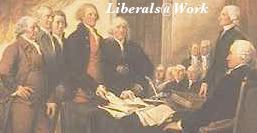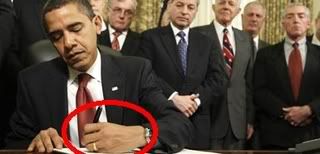The General directs us to remember the wisdom of MLK. I believe that there is no coincidence that the theme, the three-word slogan that launched John Edwards' candidacy for president last month can be found in Martin Luther King, Jr.'s speech at Manhattan's Riverside Church.
MLK, 1967:
We are now faced with the fact that tomorrow is today. We are confronted with the fierce urgency of now. In this unfolding conundrum of life and history there is such a thing as being too late. Procrastination is still the thief of time. Life often leaves us standing bare, naked and dejected with a lost opportunity. The "tide in the affairs of men" does not remain at the flood; it ebbs. We may cry out deperately for time to pause in her passage, but time is deaf to every plea and rushes on. Over the bleached bones and jumbled residue of numerous civilizations are written the pathetic words: "Too late." There is an invisible book of life that faithfully records our vigilance or our neglect. "The moving finger writes, and having writ moves on..." We still have a choice today; nonviolent coexistence or violent co-annihilation.
We must move past indecision to action. We must find new ways to speak for peace in Vietnam and justice throughout the developing world -- a world that borders on our doors. If we do not act we shall surely be dragged down the long dark and shameful corridors of time reserved for those who possess power without compassion, might without morality, and strength without sight.
Now let us begin. Now let us rededicate ourselves to the long and bitter -- but beautiful -- struggle for a new world. This is the callling of the sons of God, and our brothers wait eagerly for our response. Shall we say the odds are too great? Shall we tell them the struggle is too hard? Will our message be that the forces of American life militate against their arrival as full men, and we send our deepest regrets? Or will there be another message, of longing, of hope, of solidarity with their yearnings, of commitment to their cause, whatever the cost? The choice is ours, and though we might prefer it otherwise we must choose in this crucial moment of human history.
John Edwards, recalling MLK's message of resistence to war:
2007:
Dr. King's powerful theme that day forty years ago, exactly one year before he was assasinated, was that Silence is Betrayal. He taught us not only how to protest, effectively, peacefully, and inspired us not to hesitate, but to act now -- that now matters. He also taught us why we must take a stand:As he put it then, there comes a time when silence is a betrayal -- not only of one's personal convictions, or even of one's country alone, but also of our deeper obligations to one another and to the brotherhood of man.
That's the thing I find the most important about the sermon Dr. King delivered here that day. He did not direct his demands to the government of the United States, which was escalating the war. He issued a direct appeal to the people of the United States, calling on us to break our own silence, and to take responsibility for bringing about what he called a revolution of values.
A revolution whose starting point is personal responsibility, of course, but whose animating force is the belief that we cannot stand idly by and wait for others to right the wrongs of the world.
And this, in my view, is at the heart of what we should remember and celebrate on this day. This is the dream we must commit ourselves to realizing.
It is with such activity in mind that the words of the late John F. Kennedy come back to haunt us. Five years ago he said, "Those who make peaceful revolution impossible will make violent revolution inevitable."Increasingly, by choice or by accident, this is the role our nation has taken -- the role of those who make peaceful revolution impossible by refusing to give up the privileges and the pleasures that come from the immense profits of overseas investment.
I am convinced that if we are to get on the right side of the world revolution, we as a nation must undergo a radical revolution of values. We must rapidly begin the shift from a "thing-oriented" society to a "person-oriented" society. When machines and computers, profit motives and property rights are considered more important than people, the giant triplets of racism, materialism, and militarism are incapable of being conquered.
 Exposing the lack of compassion by conservatives and
debunking right wing hypocrisy at every opportunity.
Exposing the lack of compassion by conservatives and
debunking right wing hypocrisy at every opportunity.





 Subscribe via Email
Subscribe via Email
0 Comments:
POST A COMMENT